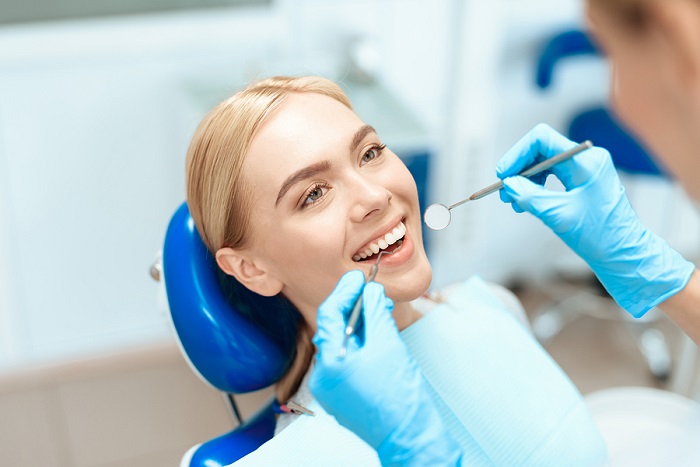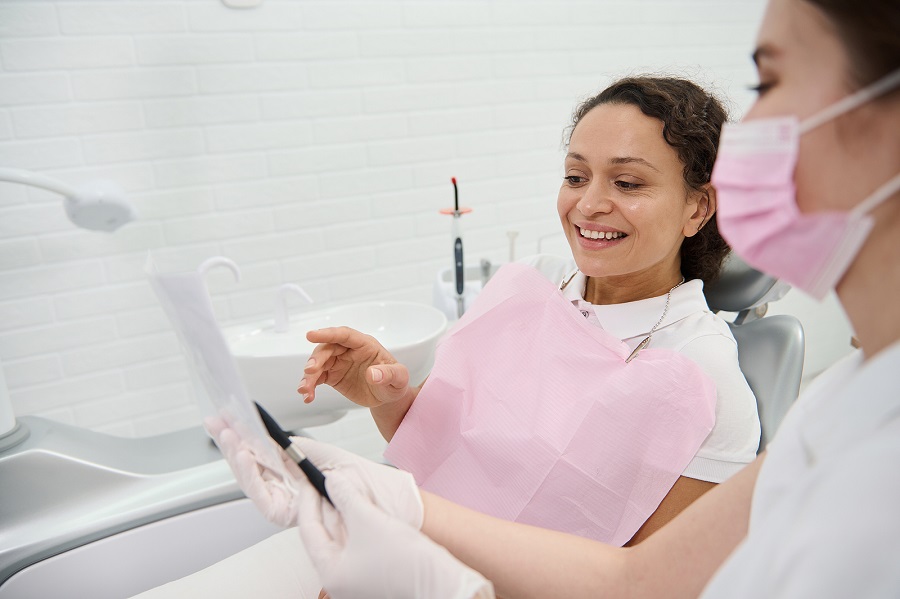Everyone wants a perfect smile, and that description usually involves having teeth that are pearly white. There are a number of measures available to those who want to whiten their teeth, but which one is the best choice? The answer to that question lies in each individual’s unique dental circumstances. To choose the most appropriate method, it is important to understand what causes tooth discoloration, how the different products work, and most importantly, knowing whether or not teeth whitening procedures are dangerous for your health.
What Causes Tooth Discoloration?
There are a number of causes for tooth discoloration, and these reasons can be divided into two categories: intrinsic (within the tooth) and extrinsic (arising from the outside of the tooth). As the tooth ages, enamel tends to thin from wear. Other forces that may contribute to thinning enamel are activities such as grinding teeth, and eating acidic foods. At the same time, dentin, which is the layer inside the enamel, tends to darken and yellow. Specifically, as the body works to repair your teeth, the newer dentin is darker. Other things that tend to yellow your teeth include taking tetracycline before the age of 10, falling and hitting your tooth, too much fluoride, and genetics.
In addition, the outer part of the tooth can also stain, resulting in extrinsic discoloration. Activities that contribute to the staining include smoking, and drinking coffee, tea, or red wine. The interesting thing is that intrinsic and extrinsic discolorations are treated differently, so it is important to determine the cause before deciding on treatment.
What Treatments are Available
There are a number of products available for whitening, however the ADA recommends that whatever you choose, a dentist should supervise it. Whitening toothpaste will only treat extrinsic discoloration, so it is only necessary if you have staining. Another way to treat external staining is by having your teeth professionally cleaned and polished at your dentist’s office.
Intrinsic discoloration can be treated with professional whitening at the dentist’s office, utilizing a bleaching gel that is accelerated using a special light. The gel is soaked into the inner aspect of the tooth, lightening the dentin. With the inner aspect of the tooth lighter, it reflects a lighter shade through the enamel.
Yet another way to have dentist-supervised whitening is by having custom whitening trays made from impressions taken in the office. These trays help prevent the hydrogen peroxide from coming in contact with your gums, while surrounding your teeth three-dimensionally with the whitening gel. Whitening strips, which are available over the counter, may provide some intrinsic whitening, however the results are often uneven, and there is a greater risk of irritation to surrounding tissue, and for swallowing of the chemicals used for the whitening. Finally, whitening mouthwash is not very effective, because there is very little contact with the teeth, and DIY strawberry or lemon paste applications are not recommended because the fruit acid wears away the tooth enamel.
Who is a Candidate for Whitening?
The best place to get an answer to this question is at your dentist’s office. Every patient is different, and his or her dental health and history will determine whether whitening is an option. However, some general guidelines can help inform your decision. Bleaching products are not recommended for children under the age of 16, because the nerve root can become irritated, creating increased sensitivity. The use of whitening products is also not recommended for pregnant or lactating women. If you have sensitive teeth, or have an allergy to the chemicals used, it would not be advised that you use the products. With a dental exam, it can be determined if you have gum disease, worn enamel, untreated cavities or exposed nerve roots. All of these conditions should discourage you from undergoing whitening treatment.
So Is Teeth Whitening Dangerous?
If you do not have any of the previously mentioned conditions, and if you are under the supervision of a dentist, teeth whitening is not dangerous. However, you should be aware that you might experience some adverse effects. For instance, many people experience tooth sensitivity after treatment. This is only temporary but you can anticipate this possibility. It is important to keep the products away from your gums, because it can cause local gum irritation. This effect can be minimized by the use of custom-fit trays.
Another reason to undergo whitening under the supervision of a dentist is because you can have too much of a good thing. Excessive use of the bleaching product can permanently damage your teeth, making them look see-through or discolored. Whitening toothpaste is a good way to remove stains, but it is abrasive and shouldn’t be used more than once per week. Whitening strips will often give uneven results, can sometimes irritate your gums, and may upset your stomach when you swallow the chemicals.
In summary, tooth whitening is a viable option to improve the look of your smile. Depending on the type of discoloration you have, there are a number of safe and effective options available for treatment. However, for the best results both aesthetically, and for the health of your teeth and gums, it is recommended that whatever treatment you choose, you do it under the supervision of a dentist.
If you have any questions about tooth whitening and the options that have been mentioned, or if you have any other dental concerns, we invite you to please call (954) 368-6264 today, or request an appointment online. Dr. Ernie Soto offers comprehensive dental care, including sedation dentistry and reconstructive care, and he is committed to help you achieve your optimal level of dental health.
Office Hours
MON - THU9:00 am - 5:00 pm
FRI9:00 am - 1:00 pm
SAT - SUNClosed
Address: 10187 Cleary Blvd STE 103, Plantation, FL 33324
Email: jenn@drerniesoto.com
Phone: (954) 368-6264





